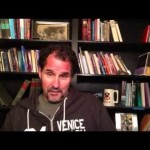We run our website the way we wished the whole internet worked: we provide high quality original content with no ads. We are funded solely by your direct support. Please consider supporting this project.

What Is an Idol?
We all believe lies about God that have caused us to mistrust him and therefore to look elsewhere for life. This is what an idol is. It’s anything we try to use to fill what only God can fill.
God never intended anyone or anything other than Jesus Christ to meet our core need for unsurpassable worth and absolute security. So when we try to meet these most central needs with something-or-someone other than God, that something-or-someone becomes an idol.
Idols always fail. They leave us with profound experiences of disappointment, frustration, hopelessness, and a host of other painful emotions. We try a wide variety of tactics to numb these painful emotions (alcohol, drugs, pornography, food, etc), or we distract ourselves from them (work, television, movies, sports, politics, etc). But distractions are only momentary and the Novocain of the idols eventually wears off.
A common idol we face today is related to “the American Dream.” Many ‘get life’ from what they achieve, what they possess, or whom they impress, which leads them to work eighty hours per week, sacrificing family and friends in the process of climbing arbitrary ladders.
Others chase peak experiences, believing that the next risk-taking adventure, the next experience of falling in love, the next lurid sexual experience, or the next drug-induced high will make them feel fully alive.
Christians tend to have a distinct set of religious idols. By this I don’t mean golden calves, statues, or shrines. Instead, some religious people have tried to find their ultimate worth and security in special rituals. Others have adopted righteous behaviors as a way to try and feel loved by God. And still others make an idol out of their tribe, making it superior to others because of their distinctive beliefs.
These are all forms of idolatry. God has established our worth, has accepted us into his family, and has secured us in his great love. Yet many fail to dwell in that love, fail to experience that security, and struggle to believe the worth they genuinely have. So with great hustle, and futility, they try to establish all of these things on their own.
—Adapted from Benefit of the Doubt, pages 63-65
Related Reading

Video Q&A: Do you think Jehovah’s Witnesses and Mormons are saved?
Does Greg believe that everyone goes to Heaven regardless of their beliefs? Find out here.

Trusting God for the Wrong Things
Chloe was a smart, personable, and devoted Christian student from South America whom I had the pleasure of teaching in several theology classes. In one meeting, Chloe confessed that, despite the confident appearance that she projected, she actually lived with a sense of guilt and had never felt like a good Christian. In fact, Chloe…

Why Bart Ehrman Doesn’t Have to Ruin Your Christmas (Or Your Faith) Part 8
This is the eighth of several videos Greg put together to refute Bart Ehrman’s claims published in the article What Do We Really Know About Jesus? In this segment, Greg gets into the nitty gritty of why portions of the birth account are not the dumbest lie ever. If you missed the first seven installments you can…

Conference: Faith, Doubt & the Idol of Certainty
We’re really excited about Greg’s book, Benefit of the Doubt, coming out in September. In fact, we’re SO excited that we want to invite you all to a conference we’re holding September 27-28, 2013 at Woodland Hills Church. You can get all the information you could ever hope for by clicking here. We’ll be exploring the relationship between faith…

Sermon Clip: Waking from Oz
In this unique sermon clip, Greg Boyd explains to us his “Theory of OZ” based on the movie Wizard of Oz. In the movie Wizard of Oz, the characters are all looking for something they think they need. As Christians, we do the same. Whether it’s a new job, a marriage, a lack of a…

The Only Starting Point
Sree V. Remella via Compfight Our friend Roger Olson wrote a great article on placing Jesus first when constructing a statement of faith. It might seem like a small thing, but it deeply matters what we place as primary in matters of faith. Let’s always begin with Jesus. From Roger’s blog post: What are we…
